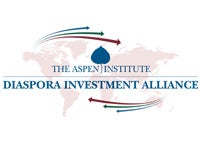Just outside Chicago recently, US Secretary of Homeland Security Jeh Johnson addressed the largest annual gathering of American Muslims in the US, the Islamic Society of North America. Noting that the Muslim-American community faces increasing prejudice, Johnson spent much of his time addressing the crowd telling the story of his grandfather, Charles S. Johnson, the first black president of Fisk University, who was called before the infamous House Un-American Activities Committee in 1949, at a time when the civil rights movement was accused of ties to communism, and when the loyalties of black academics were suspect. Johnson noted with great pride that in two generations within his own family, the story had changed from persecution of his grandfather as an outsider, to Johnson’s own: the story of a Cabinet Secretary and past General Counsel to the US Department of Defense— the quintessential insider. Johnson urged his listeners to consider that narrative of transformation to be one that was in their grasp as well.
Johnson’s choice of theme was set against the backdrop of criticism that has dogged the Department of Homeland Security for ten years, following inception of its Countering Violent Extremism (CVE) program.
CVE focuses on securing cooperation in the Department’s efforts to detect and diffuse terrorist plots and counter extremist recruitment efforts. It engages diverse Muslim communities around the United States— from the immigrant Somalis of St. Paul to black Muslims of Baltimore with a five hundred year history in the US, to the largely Syrian-American communities of Detroit and Dearborn. Its critics counter that by focusing on Muslims through a security lens, CVE creates a narrative of a “Muslim problem” in this country, exactly the story that has created such a furor in the current election cycle.
These criticism are in most respects unfair to Johnson. He and the Office of Community Partnerships that formalize efforts already underway in the Department have steadfastly worked to constructively engage Muslim communities around the nation. Johnson himself has been a regular presence at meetings in schools, mosques and community centers. Most of the objections to the CVE work of DHS have conflated those initiatives with investigations and infiltration of mosques and charities by the FBI and local police departments, efforts which have created troubling civil rights and religious free exercise problems.
But the critics still have a point. An agency with a law enforcement focus cannot possibly be viewed without some suspicion in a community which has been the focus of at least a modicum of special scrutiny. And the focus on Muslims overlooks that recruitment is going on by right-wing hate groups and militias, 892 of which exist in the US today, according to the Southern Poverty Law Center.
Secretary Johnson’s leadership on this engagement has been admirable; but in a subsequent administration, his mission needs to become regularized and institutionalized. A better approach will focus on creating resilience in all kinds of vulnerable communities, equipping them with the tools to self-regulate when menaced by extremist targeting. It may mean moving the CVE function into federal agencies that have not expressed any apparent interest in it, such as the Department of Education, or Labor and Commerce. It means attacking the roots of alienation that makes young people, whether they are religious minorities or unemployed blue-collar rural whites through education, job training, pastoral counseling and where appropriate, mental health services. It continues to mean construction of a counter-narrative to violent extremism that focuses on inclusion for those at-risk. And it means, without doubt, creating off-ramps for people identified by their parents, teachers, and counselors at being at-risk, so that no parent is faced with the choice of having his child jailed or being swallowed up by extremist recruiting.
Much of the work also will need to be done at the local level, and that will require fostering trusted and authentic leadership voices within vulnerable communities, and the creation of interfaith and multicultural alliances.

